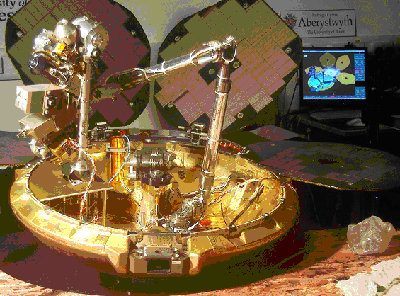Sensors and Devices
Focus Areas:
- Electrochemical sensors for explosives and drugs detection
- Semiconductor solar cells
- Charge detectors for electrons and ions
- Smart end-station for combined electron and light spectroscopies
- Space robotics for planetary exploration
From a sensitive electronic nose to sniff out drugs and explosives to solar cells that can be printed onto buildings, researchers in this stream are working with novel materials and devices that have the power to transform the way we live.
Fundamental investigations into organic chemical reactivity are helping researchers within CAFMaD to understand the underlying processes of life.
Sensors have been developed to detect a range of pollutants such as heavy metals and carbon monoxide. This analytical skill is coupled with a strong research base in environmental rehabilitation, such as the development of new clays and gel materials for allowing plant growth in slag heaps.
A novel charge counting detector has been developed which enables changes occurring at the surfaces of materials to be studied in-situ for the first time. This has been applied to the study of how contacts may be formed between organic materials and metal wires used to connect devices to form electronic systems.
The collaboration between researchers in chemistry, electronics and physics brings together expertise in designing and producing, characterising and applying these new devices and opening up new areas of science.
Expertise in robotics is being applied to instrumentation for areas as diverse as space exploration and earth bound x-ray science.

Researchers from Aberystwyth programmed the robotic arm on the Beagle 2 mission.
Staff operating in this research field are:
Team Leaders: Professor Maher Kalaji; Dr Dave Langstaff
Members: Dr Dave Barnes; Dr Tony Cook; Professor Andy Evans; Dr Peter Holliman; Dr Stuart Irvine;
